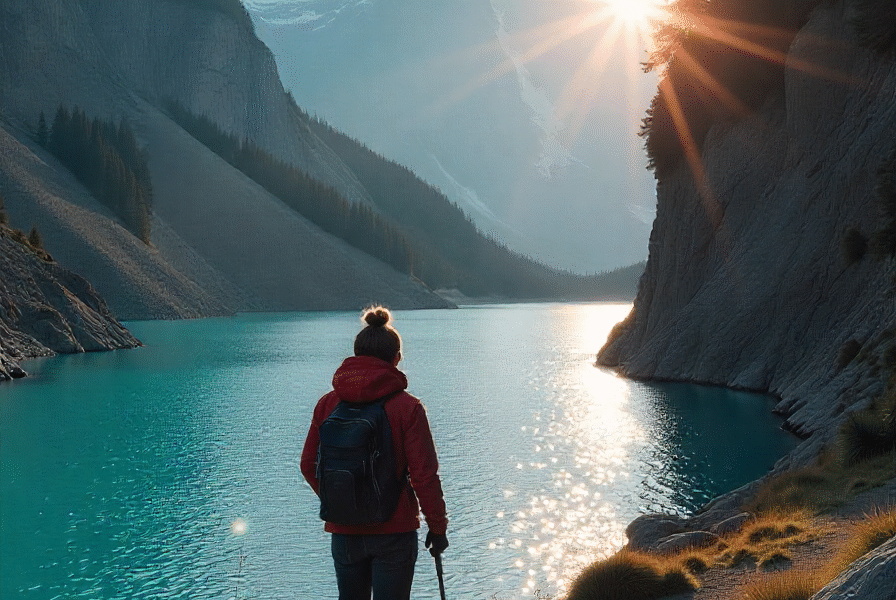Travel is more than boarding a plane, checking into a hotel, and taking pictures at well-known landmarks. For many, it is about peeling back the layers of a destination, discovering traditions, and connecting with people whose everyday lives may look very different from our own. The true reward of traveling comes not from rushing between attractions, but from slowing down long enough to let a place reveal its character.
In a world where airfares are cheaper than ever and information about any city is only a search away, it has become increasingly tempting to stick to pre-planned itineraries. Yet the journeys that linger in memory often come from unexpected detours, local conversations, and moments where the line between visitor and participant disappears. Let’s look at how travel can move beyond the surface, while highlighting destinations, cultural encounters, and practices that turn ordinary trips into transformative experiences.
1. The Rise of Meaningful Travel
The past decade has seen an evolution in the way people approach travel. No longer satisfied with quick snapshots, many seek depth: cooking with local families, learning traditional crafts, or volunteering on conservation projects. This is sometimes referred to as “experiential travel.”
Unlike traditional tourism, experiential journeys place emphasis on interaction. For example, walking through a vineyard in Tuscany with the grower explaining the challenges of each season feels different than simply buying a bottle at an airport shop. Similarly, trekking with guides from indigenous communities in Peru allows visitors to learn about medicinal plants, ancestral stories, and the spiritual connection to land. These kinds of experiences create personal ties, which photographs alone cannot capture.
2. Cities That Encourage Slow Exploration
Not every trip has to involve adrenaline or remote adventure. Some of the most rewarding journeys are to cities that encourage wandering without a rigid schedule.
-
Lisbon, Portugal – With its narrow cobblestone streets, pastel façades, and hillside views of the Atlantic, Lisbon is a city that rewards curiosity. Instead of rushing between monuments, one can take a tram, hop off in a quiet neighborhood, and enjoy a pastel de nata in a local café while listening to the sound of fado drifting from nearby bars.
-
Kyoto, Japan – Once the imperial capital, Kyoto reveals its treasures slowly. Beyond its grand temples, hidden alleyways lead to family-run tea houses, where centuries-old rituals are still observed. Renting a bicycle and riding along the Kamo River at sunrise provides a calm contrast to the usual tourist rush.
-
Buenos Aires, Argentina – Known for tango and late-night energy, Buenos Aires is also a city of parks, bookstores, and countless cafés. Spending a week here allows travelers to discover that its charm lies not only in dance performances but also in conversations with locals who will passionately debate literature, politics, or football over coffee.
3. Nature as a Teacher
For many, the most profound travel moments happen far from cities. Being immersed in landscapes that silence the constant noise of daily life can change perspectives.
-
Norwegian Fjords – Sailing through Norway’s fjords, one is confronted with sheer cliffs rising out of dark waters. Villages appear almost impossibly perched on green slopes. This is a landscape that commands respect, reminding us how small we are compared to nature’s scale.
-
Patagonia – Stretching across Chile and Argentina, Patagonia is a region where winds shape the land. Glaciers, turquoise lakes, and jagged peaks dominate the horizon. Hiking in Torres del Paine or El Chaltén is not just physical exercise but an encounter with raw wilderness.
-
Namib Desert, Namibia – With dunes that change colors under shifting sunlight, the Namib shows how barren land can hold unexpected beauty. Standing on top of a dune at sunrise, the silence is so complete it feels almost spiritual.
Travelers who step into such environments often return with a new sense of humility and responsibility for protecting fragile ecosystems.
4. Food as Cultural Connection
Cuisine is perhaps the most immediate way to understand a culture. Trying dishes prepared in traditional ways gives insight into history, climate, and values.
-
Street Markets in Bangkok – The buzz of woks, the aroma of lemongrass, and the heat of chili peppers tell stories about Thai ingenuity in balancing flavors. Eating shoulder-to-shoulder with locals brings an authenticity that no luxury restaurant can replicate.
-
Home-cooked Meals in Morocco – Accepting an invitation to dine with a Moroccan family means sitting around a tagine, breaking bread with hands, and learning how hospitality is considered sacred. Each spice blend carries centuries of knowledge.
-
Basque Country, Spain – Known for its pintxos bars, this region elevates small bites into an art form. Sampling these alongside locals hopping from one tavern to another provides an education in communal dining.
Through food, we not only taste but also connect—sharing laughter, learning phrases, and building bridges that go beyond language barriers.
5. Sustainable Choices for the Conscious Traveler
The growth of travel has undeniably strained environments and communities. Overcrowding, rising rents, and pollution are consequences faced by many popular destinations. Conscious travelers now make deliberate choices to minimize harm.
-
Choosing off-season travel spreads out demand, supporting local businesses year-round.
-
Opting for locally owned accommodations ensures that money stays within the community.
-
Participating in low-impact activities, such as hiking, cycling, or kayaking, helps preserve ecosystems.
-
Carrying a refillable bottle and reducing single-use plastics may sound small, but multiplied across millions of travelers, it makes a difference.
Respectful travel means recognizing that we are guests. Greeting people in their own language, dressing appropriately for cultural norms, and asking before taking photos are simple acts that show gratitude.
6. The Rewards of Unplanned Moments
While guidebooks and apps are useful, some of the best travel memories come from chance encounters. Missing a bus might lead to meeting a family who offers tea while you wait. Wandering away from a crowded beach might reveal a hidden cove where fishermen mend their nets.
One traveler recounted how getting lost in a small town in Italy led to stumbling upon a local festival. Instead of following a schedule, they danced with villagers, shared homemade wine, and left with stories that could never be found in any brochure.
Such moments remind us that travel is not just about ticking off sites, but about surrendering control and allowing a destination to surprise us.
7. How Travel Changes Us
Perhaps the greatest value of travel is internal. Standing before the ruins of ancient civilizations makes us reflect on time. Hearing folk songs sung in a language we do not understand teaches us the universality of emotion. Watching children play in villages without modern luxuries challenges assumptions about happiness.
Travel dismantles walls. It reminds us that despite different flags, cuisines, and rituals, human desires are often the same: connection, belonging, meaning. By stepping into another person’s world, even briefly, we gain perspective that books or documentaries alone cannot provide.
Final Thoughts
In an era where photographs can be taken instantly and shared within seconds, the temptation is to travel only for show. But the journeys that endure are not always photogenic. They are the quiet evenings spent listening to waves with strangers who become friends, the lessons learned while trying to communicate across cultures, and the humility felt before landscapes older than history.
Travel, when approached with openness and respect, has the power to change not only how we see the world but also how we live when we return home. It teaches us to slow down, to appreciate differences, and to find wonder in the ordinary. And that, ultimately, is the greatest souvenir.


